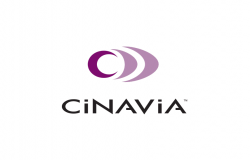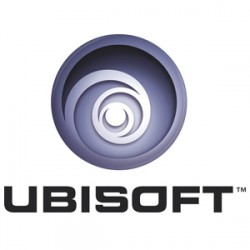Weekly News Roundup (1 June 2014)
That’s more like it. A solid news week, where I had a good choice of stories, and even discarded a few that I didn’t think would be worthy of an extended mention. Like this story about a possible breakthrough in PS4 jailbreaking – almost no other news sources carried this story, and so the authoritativeness of this news story was questionable.
Or this story about how the Wii U has outsold the PS4 in Japan. This could be due to issues with the PS4, such as stock or lack of games, or an issue with the Wii U (which isn’t doing that well either – so I guess nobody wants next-gen consoles in Japan), or just consumer trends. The fact that the Japanese video gaming market has always been a bit different to the rest of the world also means that this wasn’t the best story to cover.
Moving away from gaming, we have this story about the latest stats from the “six strikes” regime in the U.S. – an interesting read if you’re interested in stats and stuff, but the gist of it is that U.S. pirates seem to be more persistent than pirates say in France, where the first warning is usually enough to deter them from doing it again (whereas 30% of those that receive a first warning continue to pirate in the U.S).
And then we have this story where UK MPs are calling on Google to do more on piracy. I don’t even care what my own country’s MPs say, let alone what UK MPs have to on an issue they know little if anything about!
So that was the news that didn’t make the headlines here, let’s see which ones did.
![]()
One of the most annoying, and hence successful anti-piracy measures ever devised has been broken. Cinavia anti-piracy protection, which has become more and more prevalent in Blu-ray releases, has been broken, according to a German company that has been working on it for years.
For those that haven’t had the pleasure of dealing with Cinavia, it’s an anti-piracy technology that embeds a watermark into the audio track, one that cannot be removed even via numerous re-encodings (both digitally and analog re-recordings). Once a Cinavia compatible player (which is all Blu-ray players, even ones on the PC, since 2012) detects the watermark, it warns the users of their transgressions and then does one of several things ranging from muting the audio to stopping playback altogether.
The common technique for dealing with Cinavia has been to substitute the audio with one from a release that does not use Cinavia, or to use a player that doesn’t support it. German company Pixbyte says they have now produced a tool that allows Cinavia encoded videos to be stripped of the Cinavia watermark, with only the audio needing to be re-encoded. On average, the company says, it only takes 20 minutes to get rid of Cinavia.
Pixbyte says they don’t fear any legal repercussions, as removing Cinavia isn’t the same as removing AACS or other types of copy protection. This is because Cinavia doesn’t prevent copying per se. I’m not sure if this line of argument will hold up in court though, since CSS and AACS technically doesn’t prevent you from copying the files either – they just come out all scrambled at the other end and unplayable. Much less playable than a Cinavia-borked file, but the idea is nearly the same. Time will tell if Pixbyte is right, or if they’ll be embroiled in some legal drama.
——

Has Spotify helped to reduce piracy? Anecdotal evidence suggests it has, but the music industry says otherwise.
It’s common knowledge that services like Spotify have helped greatly in the fight against piracy. But some in the music industry do not believe that making available cheap or free legal alternatives is an answer to the piracy problem. Case in point, Australia’s music royalty collection organization, APRA AMCOS, recently wrote an op-ed piece blasting those that say legal alternatives are the way forward in the piracy fight (specifically in response to those who blame the lack of legal options for the high Game of Thrones piracy rate in Australia). APRA AMCOS’s Andrew Harris says the introduction of Spotify in Australia has done nothing to combat piracy, with piracy rate just as high as when Spotify and other legal services weren’t available.
By dragging Spotify into the Game of Thrones fight, Spotify had to respond and respond they did. Spotify’s managing director here in Australia, Kate Vale, rejected Harris’s assertions, saying there are plenty of anecdotal evidence around to suggest that Spotify is helping to win the war against piracy, and that the company is currently working on a project to illustrate just how effective Spotify has been. Vale also noted that music piracy was reduced by 30% in Sweden in the six years that Spotify has been available there, for example.
The problem as I see it is that the music industry has managed to indoctrinate themselves into believing the often hyped up and biased stats that they have paid to have produced. It’s as if they don’t want services like Spotify to actually be responsible for reductions in piracy, because these may not be things that helps labels make more money, and also because they’re platforms the music industry did not come up with themselves. It also makes their lobbying efforts harder if there is seen to be a simple and industry based solution, even if that solution comes from a different (I.T., Internet) industry. They’d rather be proven wrong about new harsher laws and anti-consumer technological solutions, than to be proven right that piracy is a pricing and availability issue.
![]()
Ubisoft is back in the headlines, and unfortunately, it’s again to do with DRM. Unfortunately, the much hyped and eagerly anticipated ‘Watch Dogs’ could not be released without a DRM controversy, as the PC version of the game was practically unplayable as the rush to play it on launch day crashed Ubisoft’s Uplay service. Despite the game having an offline mode, it also required online authentication with Uplay before gamers could be allowed to go offline. And so, PC gamers were left with an unplayable game they just purchased or pre-ordered at full cost.
This kind of thing has become too common to be ignored, and to be fair, it has less to do with DRM, and more to do with companies not investing enough in excess online capacity. You’d think with an industry so reliant on pre-orders, that they could and should have been able to predict the amount of traffic expected on launch day and plan for it. It’s just symptomatic of an industry that do not seem to have much regard for their most important asset: their customers. But with so many so willing to pre-paying for something that hasn’t really been properly reviewed (thanks to embargoes in place), perhaps it’s us gamers that are encouraging this bad behavior of treating us for granted. Because, the truth is, we do end up paying (and pre-paying) for all sorts of crap, and put up with even more unacceptable crap, and so maybe we do want to be taken for granted!
——
I would never take you, dear reader, for granted of course. That’s why I painstakingly hand pick through all the useless and boring news stories for you, personally, every week. Beacuse I have to maintain a high standard of quality. It’s definitely not because I was lazy or busy playing video games or anything like that. Ahem.
See you next week.


